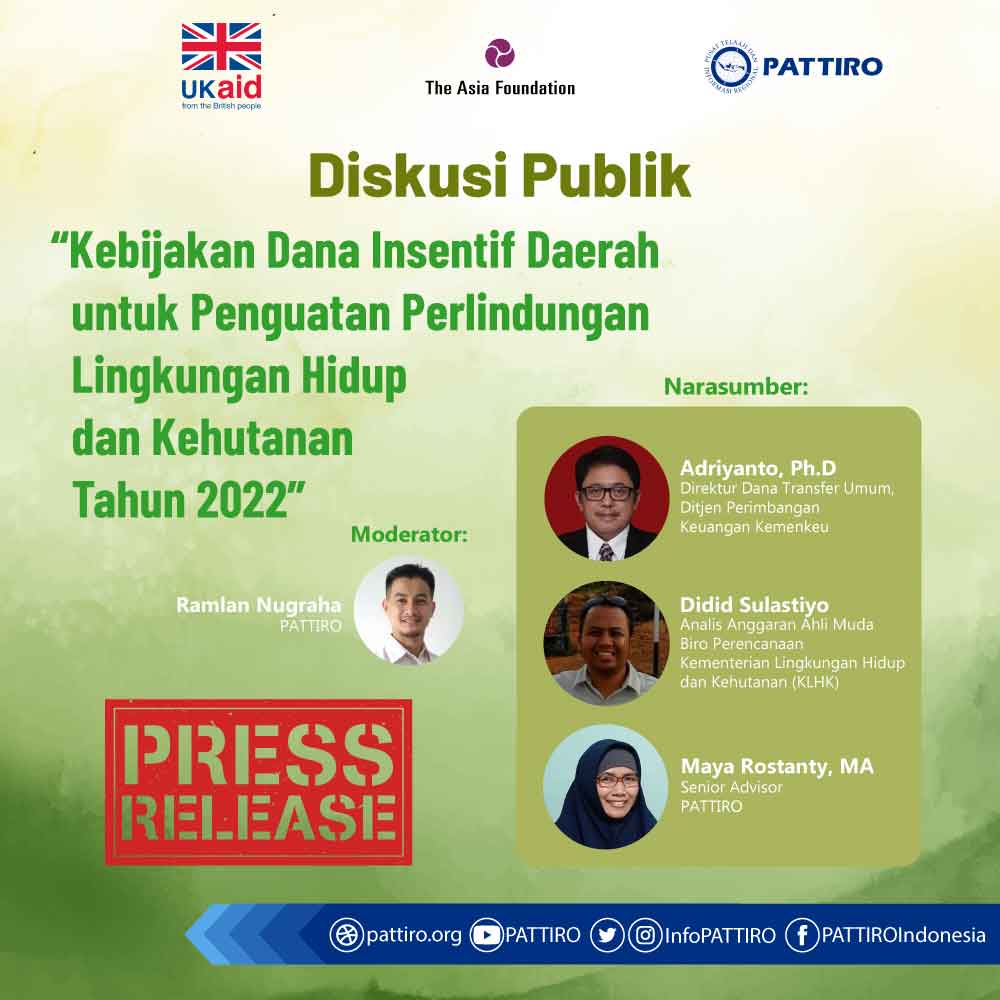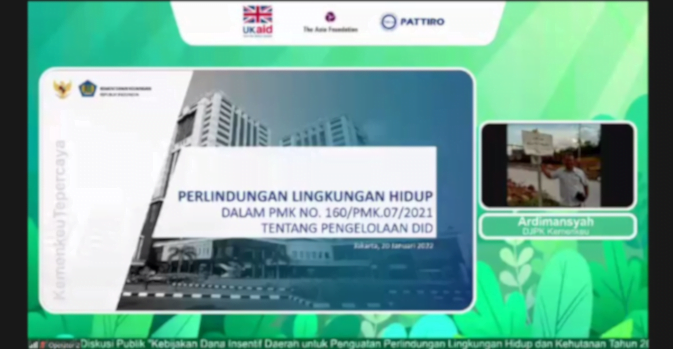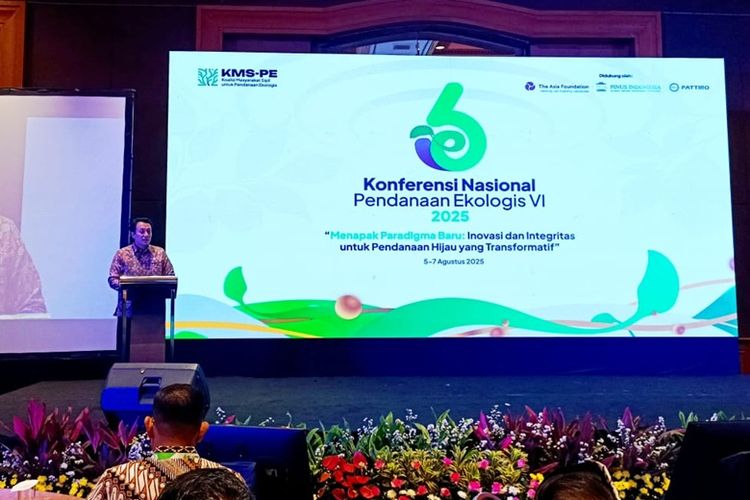PATTIRO: 2022 DID Policy Expected to Improve Environmental Management Performance at the National and Regional Levels
One of the government’s instruments in improving local government performance is the Regional Incentive Fund (DID). This fund is allocated by the government in the National Budget (APBN) to reward regions that have good performance in the areas of regional financial management, public government services, basic public services, and community welfare. DID is also given to local governments that have good performance in managing the environment.
Through the Minister of Finance Regulation No. 160/PMK.07/2021 concerning the Management of Regional Incentive Funds issued last November, the government has included the environmental management performance category as part of the government’s public service performance indicators. This expands on the previous indicator which only used solid waste management performance indicators.
Responding to these changes, the Center for Regional Information and Studies (PATTIRO) as part of the Civil Society Coalition for Environmental Funding welcomes the issuance of this PMK. The DID assessment criterion in the previous regulation, which stipulates waste management performance as part of the indicators for granting DID to local governments, is considered by the civil society to not fully reflect ecological performance as an effort to preserve the environment and forests.
In addition, the inclusion of the environmental management performance category in the DID assessment is in line with the idea of civil society encouraging the Ecology-based National Budget Transfer (TANE) scheme. The TANE concept is carried out by reformulating the central government budget transfer scheme to local governments and adding ecological indicators in its formulation. The reformulation proposed by the Coalition in the distribution of DID is to include ecological indicators using 2 indicators, namely: 1) Process indicators, such as the proportion of the budget for environmental functions and regional policies that are pro-environment and forests, and 2) Output indicators, such as the Environmental Quality Index (IKLH) and its changes.
Through the issuance of PMK N0.160/PMK.07/2021, it is hoped that it can increase IKLH both nationally and for local governments and strengthen environmental incentive schemes for local governments that have good performance in environmental and forestry management. On the other hand, PATTIRO together with civil society coalitions are also pushing for environmental protection policies in regions that have adopted the Ecology-based District Budget Transfer (TAKE) and Ecology-based Provincial Budget Transfer (TAPE) schemes can be encouraged to be part of the performance indicators in the DID.
Contact person: Andwi Joko Hp. 0822-4289-5833







